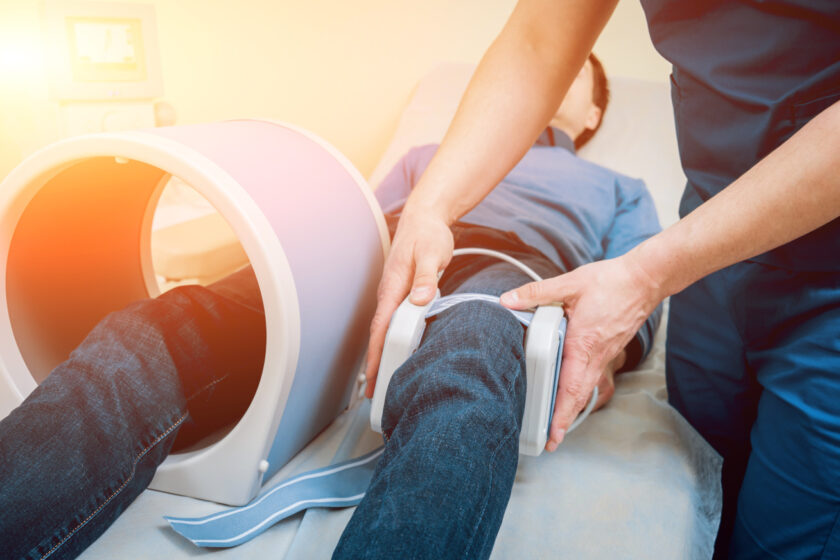Mental health recovery is complex, and a successful approach often requires treatment at multiple levels. Where mental health challenges are concerned, therapy is nearly always recommended—but sometimes it isn’t enough. That’s why Medication-Assisted Treatment (MAT) can be an effective and transformative option for those living with severe mental health disorders. To understand the impact it can have, let’s look at MAT’s definition, effectiveness, and benefits.
What Is Medication-Assisted Treatment for Mental Health Disorders?
Medication-Assisted Treatment (MAT) for mental health disorders is simply a therapeutic approach that combines prescription medications with counseling and behavioral therapies to treat mental health issues, particularly when they co-occur with substance use disorders.
An MAT program for mental health accounts for the complex interplay between the psychological, biological, and social factors that contribute to mental health conditions. The medications used in MAT are specifically chosen to stabilize mood, reduce symptoms, and improve cognitive function, which ultimately enhances the effectiveness of therapy and counseling.

This integrated approach ensures a more holistic treatment, targeting not just the symptoms but also the root causes and individual experiences of each patient. MAT is recognized for its effectiveness in providing a more balanced and sustainable path to recovery and mental wellbeing.
Why Is MAT Effective for Severe Mental Health Conditions?
Medication-Assisted Therapy (MAT) for mental health disorders is effective for several reasons, such as its:
Dual Approach: MAT’s dual focus on both medication and therapy provides a comprehensive treatment plan.
Customized Treatment: MAT programs are tailored to meet the specific needs of each individual, from the type of prescription used to the techniques used in therapy.
Reduced Stigma: By combining medication with therapy, MAT helps in reducing the stigma often associated with medicated approaches.
Benefits of Medication-Assisted Therapy for Severe Mental Health Conditions
Medication-Assisted Therapy (MAT) offers several significant benefits for individuals with severe mental health conditions, including:
Enhanced Effectiveness of Therapy: Medication can improve cognitive function and emotional regulation, making patients more receptive to therapy and counseling.
Improved Symptom Management: MAT provides effective control of severe symptoms, including those not adequately addressed by therapy alone.
Reduced Risk of Relapse: By stabilizing mood and reducing cravings, MAT can significantly lower the risk of relapse, particularly in individuals with co-occurring substance use disorders.
Holistic Approach: By addressing both the biological and psychological aspects of mental health conditions, MAT provides a more comprehensive treatment strategy.
Supports Long-Term Recovery: MAT is designed to support sustained recovery, offering ongoing management of symptoms and continuous adaptation of treatment plans as needed.
These MAT benefits for mental health show the positive impact this form of treatment can have on overall wellbeing in both the short and long term.
The Role of Medications in MAT
Medications used in MAT are primarily designed to manage withdrawal symptoms, reduce cravings, and address underlying mental health issues. These medications are FDA-approved and are prescribed under the guidance of healthcare professionals. As mentioned above, medications can help clients regulate, often allowing them to get in touch with their emotions without those emotions becoming overwhelming. In some cases, this actually allows clients to go deeper in therapy.
The Importance of Counseling and Behavioral Therapies
While medications can address physiological aspects, counseling and behavioral therapies are pivotal in tackling the psychological component. These therapies aid in developing coping strategies, improving emotional regulation, and fostering a deeper understanding of the underlying causes of the condition.
What Is The Success Rate of MAT Treatment For Severe Mental Health Conditions?
Studies have shown that MAT significantly improves patient outcomes, particularly in individuals with co-occurring substance use disorders. People often experience a decrease in the severity of their symptoms, improved quality of life, and a reduction in the likelihood of relapse.
It’s important to remember that success in treatment is a personal journey and varies from individual to individual, but MAT stands as a strong, evidence-based option in the realm of mental health treatment. The effectiveness of MAT is further enhanced when it is integrated with comprehensive counseling and behavioral therapies, like in our programs at Experience Structured Living.
Embracing a New Path at Experience Structured Living
Medication-Assisted Treatment (MAT) offers a beacon of hope for individuals struggling with severe mental health conditions. At Experience Structured Living, we offer medication management in San Diego to create a safe, secure environment for our residents. Plus, our holistic approach ensures that each individual receives not just medical treatment but also emotional and psychological support tailored to their unique journey. We believe in empowering our clients, providing them with the tools and resources they need for a sustainable and fulfilling recovery.
Utilizing MAT mental health services at Experience Structured Living means taking the first step toward long-term recovery, improved wellness, and renewed hope. Reach out to us at ESL, and we’ll walk with you every step of the way.

Dr. Melden earned his Doctorate in Osteopathic Medicine at Philadelphia College Osteopathic Medicine and went to USC Presbyterian Hospital for his residency in Family Medicine. He then completed his Psychiatric residency at the University of California, Irvine and went to UCSD Geropsychiatry pursuing a fellowship. Dr. Melden has over 14 years of experience as a clinician specializing in treating child and adolescent, adult and geriatric clients. He has devoted his life to psychiatry in a variety of different treatment settings including in- patient and out-patient environments. He specializes in the psychiatric evaluation, complementary therapy approaches, and medical management of individuals suffering from mental illness. Currently, he maintains a private practice with Crownview Medical Group in Coronado and Carlsbad, California where he is CEO/President.





